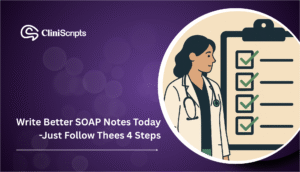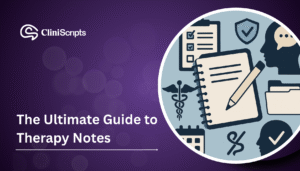Technically Reviewed By Nauman Jaffar
Is Being a Medical Scribe Worth It? Exploring the Pros and Cons
Are you wondering “Is medical scribe a good job?” or debating “Is being a medical scribe worth it?” Whether you’re a student, aspiring healthcare professional, or considering a career change, understanding the real value of medical scribes is crucial. This blog dives deep into the benefits and challenges of being a medical scribe to help you make an informed decision.
What Is a Medical Scribe and Why Become One?
A medical scribe is a professional who assists healthcare providers by documenting patient encounters in real-time, allowing doctors to focus entirely on patient care. But why become a medical scribe?
Here are compelling reasons:
-
Gain firsthand clinical experience without direct patient care.
-
Improve your medical terminology and documentation skills.
-
Build a strong foundation for future healthcare careers, including therapy aid, nursing, or medical school.
-
Earn while you learn in a high-demand role—especially with the rise of mental health professionals relying on accurate documentation.
Is Medical Scribe a Good Career? The Pros
If you’re asking yourself, “Is medical scribe a good career?”, consider these advantages:
Valuable Clinical Exposure: Many ask, “Is medical scribe considered clinical experience?” Absolutely. Scribes witness a variety of cases, from general consultations to specialized assessments like Mental Status Exams and biopsychosocial assessments.
Career Advancement: Scribing opens doors for internships, medical school admissions, and advanced healthcare roles, especially those involving note taking and diagnostic charting.
Skill Development: Enhance your multitasking, communication, and documentation skills through real-time soap note examples, Dap notes, and treatment plans for anxiety.
Flexible Work Options: Many positions are part-time or remote, ideal for students balancing academics or professionals looking to enter the mental health transcription services field.
Networking Opportunities: Work alongside doctors, therapists, and mental health professionals—an invaluable network for future growth.
Is Being a Medical Scribe Worth It? The Cons
While being a medical scribe has many benefits, it’s important to consider challenges too:
-
High Pressure Environment: You must be extremely detail-oriented and fast, especially when documenting ICD-10 codes for anxiety, PTSD ICD-10, or GAD ICD-10 during fast-paced consultations.
-
Emotional Toll: Observing trauma cases or emotional therapy sessions can be tough.
-
Limited Patient Interaction: If your passion is direct care, this role might not fully satisfy that.
-
Variable Pay: Compensation can vary widely by region—Canada, for instance, shows lower search volume for “therapy notes” and “Dap notes”, reflecting niche opportunities.
Why Do You Want to Be a Medical Scribe?
Reflect on your motivation with questions like:
-
Do you want clinical exposure before applying to a program?
-
Are you interested in improving your medical vocabulary and using tools to transcribe audio to text?
-
Can you manage a fast-paced, detail-heavy environment with accuracy?
-
Are you prepared to learn therapy intake, birp notes, and SOAP note templates?
How Does Being a Medical Scribe Impact Your Future?
So, is being a medical scribe worth it in the long run? Yes—and here’s why:
-
It boosts your resume with relevant clinical documentation experience.
-
You’ll understand the structure of mental health assessments, like biopsychosocial assessments or Anxiety Disorder ICD-10 documentation.
-
You’ll develop critical skills using digital tools for note taking, EHR systems, and scribing formats for everything from therapy aid reports to soap note examples mental health entries.
FAQs
What People Also Ask
- Is medical scribing good for medical school applicants?
Yes, it’s excellent preparation for competitive programs. - Does it count as healthcare experience?
Absolutely, including documentation of real-time assessments like Mental Status Exams and treatment plans for anxiety. - What skills does a scribe develop?
Attention to detail, medical terminology, time management, and professional communication. - Is it stressful?
Yes, especially in high-volume environments or when handling ICD-10 data for complex disorders like GAD and PTSD. - Can it lead to other jobs?
Many scribes later become nurses, therapists, or doctors.
Is Medical Scribe a Good Job?
If you’re ready to grow in the healthcare field, being a medical scribe is worth it. It’s a powerful entryway into a world of opportunity—especially for those pursuing roles in mental health, therapy, or clinical documentation. Don’t wait—take your first step toward a future in healthcare today.










